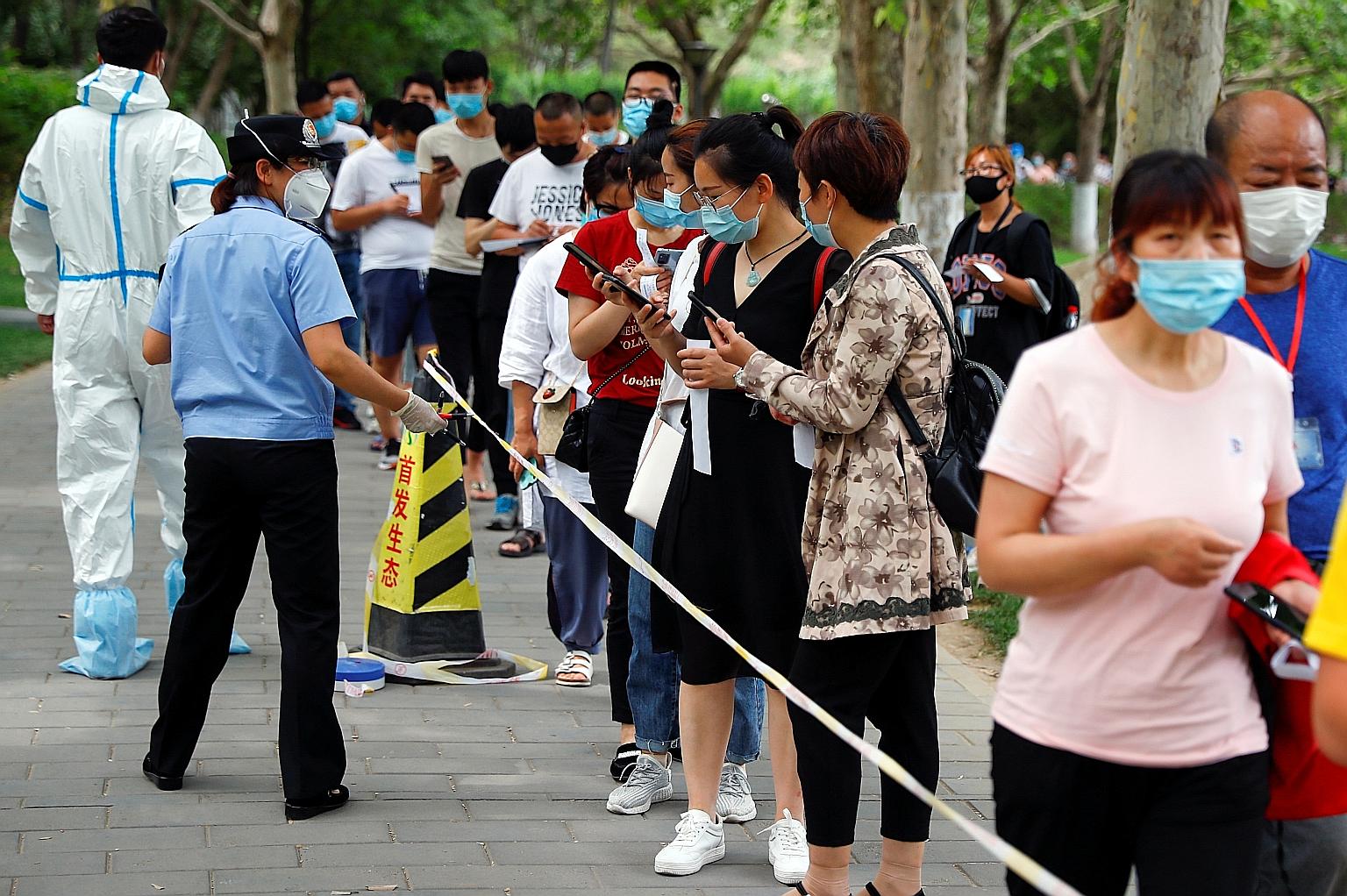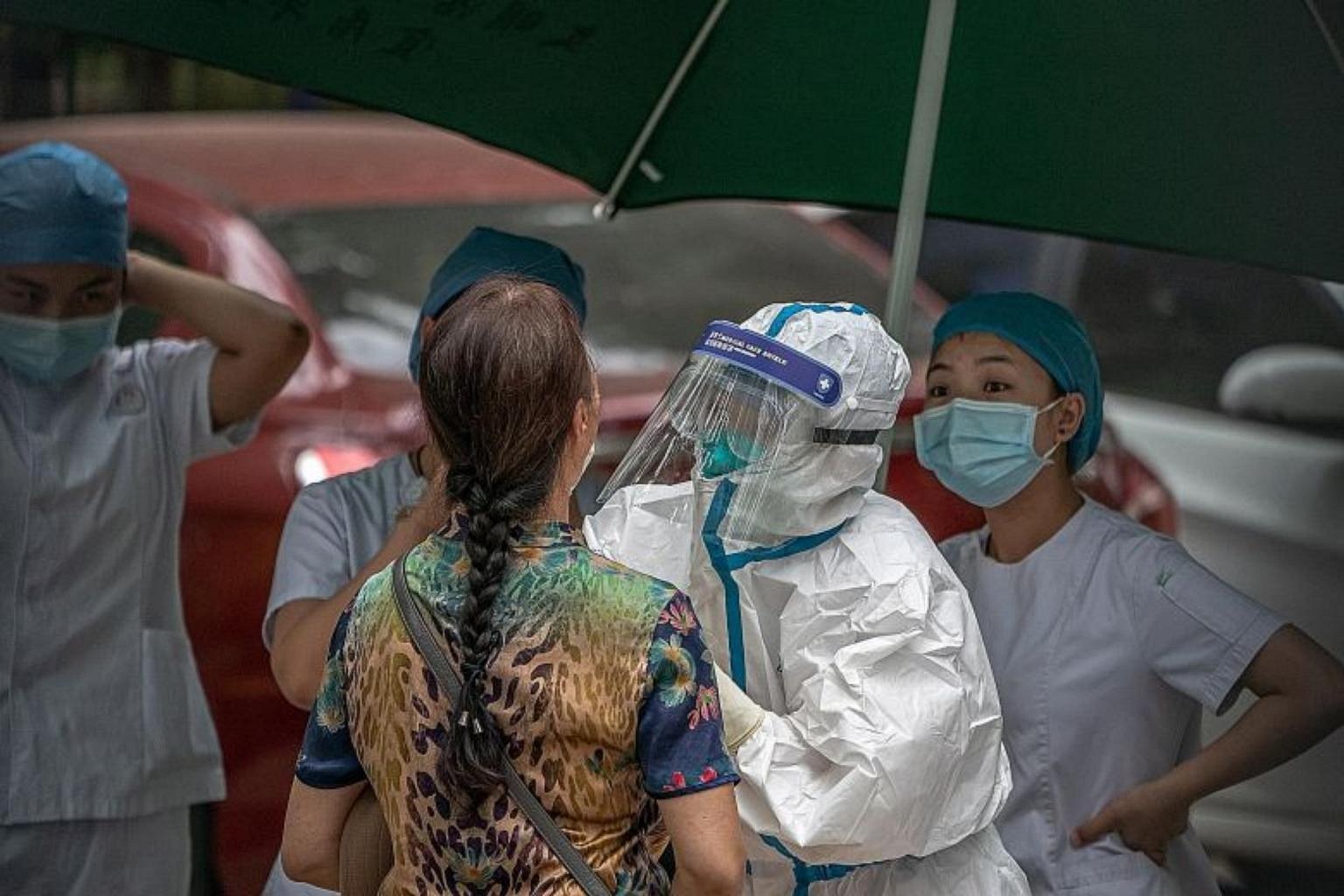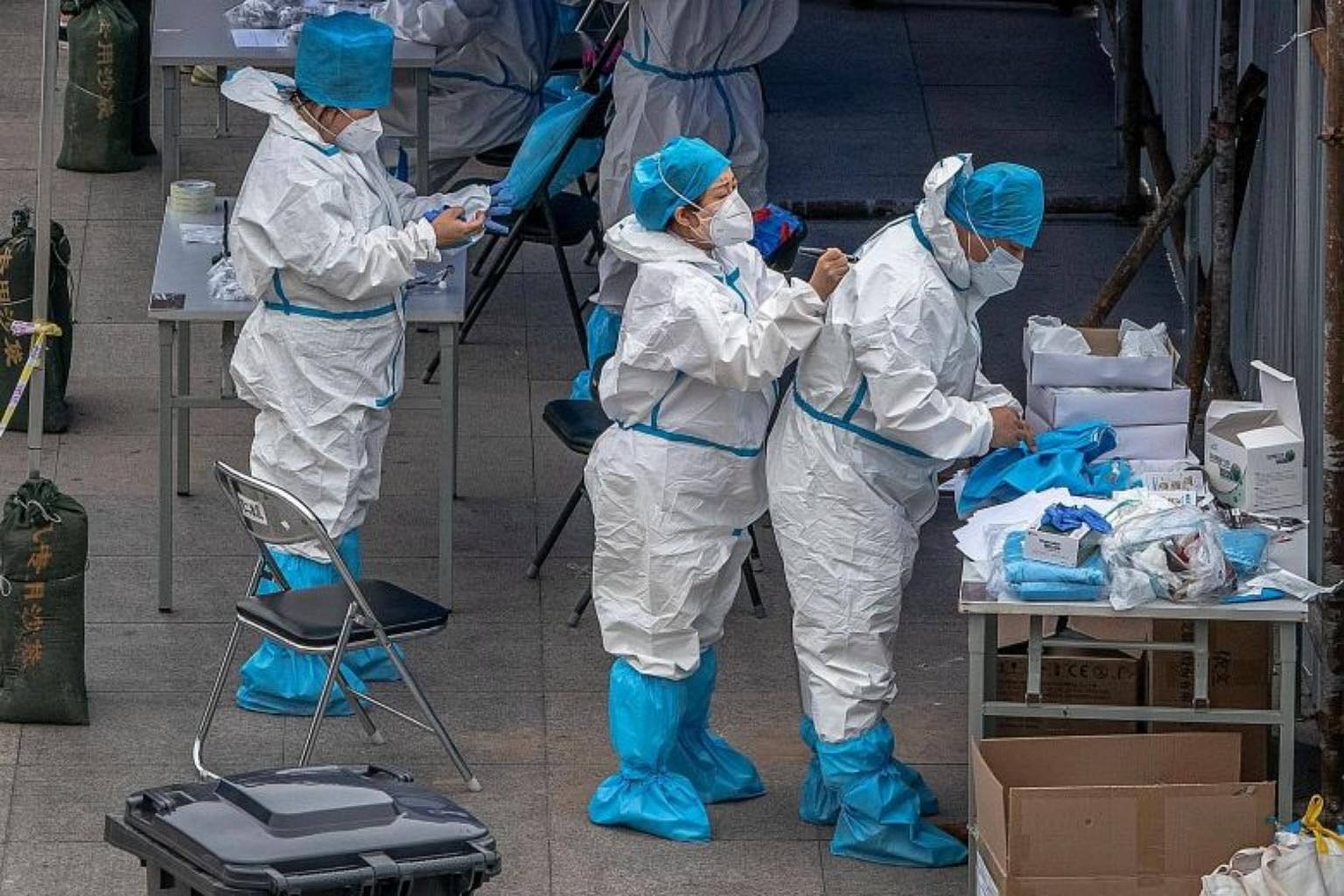Chinese health authorities say coronavirus infections could persist for some time
Another 31 cases reported, taking total to 137 since last Thursday; Beijing flare-up spreads to at least 4 provinces
Sign up now: Get insights on Asia's fast-moving developments

People lining up for a nucleic acid test in Fengtai district yesterday, after the outbreak in Beijing. The city has classified at least one community as high risk and subjected its residents to quarantine, and 32 others as medium risk.
PHOTO: REUTERS
More than 1,000 flights were cancelled and schools shut down as Beijing entered into what the state media described as a "soft lockdown".
With the city's emergency response elevated to the second-highest level, Beijing is back on the Covid-19 warpath.
Another 31 cases were recorded on Tuesday, taking the total to 137 since the authorities reported the first case after nearly two months last Thursday.
There have been no deaths, but one person is in critical condition.
The flare-up in the city has also spread to at least four other provinces - Sichuan, Hebei, Liaoning and Zhejiang - with eight infections in Hebei linked to the Xinfadi market outbreak.
Provinces have begun screening people from Beijing, while the health authorities have barred those considered medium and high risk from leaving the city. These are people who are in districts with positive cases.
Beijing has classified at least one community as high risk and subjected its residents to quarantine, and 32 others as medium risk.
Cities such as Shanghai and Guangzhou have started requiring travellers from Beijing to serve a 14-day quarantine.
In north-east Heilongjiang province, which fought a recent outbreak from imported cases, those coming from Beijing face 21 days of quarantine on top of taking four nucleic acid tests.

Travellers coming into Beijing also have to be tested and quarantined.
Within the city, some bars and restaurants have either shut or reduced their operating hours. Those that continue to operate have to impose social distancing rules.
For the first time since the Beijing government held daily briefings to provide updates on the capital city's coronavirus outbreak at a wholesale food market, officials wore masks to meet reporters yesterday morning.
It was their way of signalling that the battle against the virus has resumed.
The number of coronavirus infections could persist at this current level for some time, said Beijing's Centre for Disease Control and Prevention deputy director Pang Xinghuo at the press conference yesterday.
"This outbreak is still on the rise, and the risk of it spreading is high, making it hard to control," she said.
Dr Gao Fu, head of China's Centre for Disease Control and Prevention, reportedly said yesterday that the Xinfadi market outbreak could have started a month earlier than thought.
"There could have been many asymptomatic or mild cases during this time, leading to a lot of virus in the environment," Dr Fu told a seminar in Shanghai, according to Chinese media outlet Caixin.

"This is what we deduce, but we need further investigation."
The authorities have already tested 356,000 people since last Saturday and continue to test medical workers, residents in communities with positive cases, and teachers and students who returned to schools previously.
At a press briefing on Tuesday, health officials put to rest talk that salmon was the virus host, saying there was no evidence to support this claim, and that the latest outbreak was likely caused by human transmission or contaminated items at the market.
Fears that salmon could be the culprit after traces of the virus were found on a chopping board at the market for imported salmon triggered supermarkets and restaurants to pull it off their shelves and menus.


